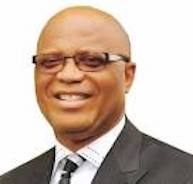NEWS
CAN Reads Riot Acts to Zonal, State, Local Chapters

By Laide Akinboade, Abuja
The Christian Association of Nigeria (CAN) yesterday said only the current President of the association, Archbishop Daniel Okoh, is empowered according to the constitution of the association, to speak on matters of national and international importance.This was contained in a statement by CAN President, Archbishop Daniel Okoh in Abuja.
The statement added that while the zonal, state and local chapters may issue communications relevant to their immediate contexts, they are not authorised to issue statements representing the national position of CAN unless expressly permitted by the national leadership. ”The Christian Association of Nigeria (CAN) issues this official clarification regarding its organisational structure and the authority to speak on behalf of the Association, in accordance with the provisions of its Constitution. This clarification is necessary to ensure accurate public representation and to prevent the spread of misinformation.”CAN operates a four-tier structure. At the national level, the Association is headquartered in Abuja and led by the President and the National Executive Council (NEC). The General Assembly ratifies significant decisions, including the election of the President. This level is responsible for national policy direction and represents all Christian denominations across Nigeria.”At the Zonal level, CAN is organised into six geopolitical zones: North-West, North-East, North-Central, South-West, South-East, and South-South. Each zone is coordinated by a Zonal Chairman and a Zonal Executive Committee. The zonal structure serves as an intermediate level for coordination, communication, and implementation of national directives across the broader regional blocs. Zonal leaders facilitate unity and consistency among the state chapters within their jurisdictions.”At the State level, CAN maintain chapters in all 36 states and the Federal Capital Territory. Each chapter is led by a State Chairman and a State Executive Committee, coordinating Christian activities within the respective states under the guidance of the zonal and national bodies.”At the Local Government level, CAN maintains councils in all 774 Local Government Areas (LGAs) across the country. These councils, headed by Local Government Chairmen, manage Christian affairs at the grassroots and report to their respective state chapters”.”The authority to issue official press statements on behalf of CAN resides solely with the President, as stipulated in the CAN Constitution. The current President, Archbishop Daniel Okoh, is therefore the only person empowered to speak on behalf of the Association on matters of national and international importance. While zonal, state, and local chapters may issue communications relevant to their immediate contexts, they are not authorised to issue statements representing the national position of CAN unless expressly permitted by the national leadership.”It has come to the attention of the national leadership that certain statements attributed to entities such as “Northern CAN,” “Southern CAN,” and other regional or unofficial groups are in circulation. CAN categorically states that these entities are not recognised within its constitutional structure. Any statements issued by such groups do not reflect the official position of CAN and should be disregarded by the public and the media,” the statement reads.Foreign News
French Butchers’ shops Closed After Child Dies of Rare Illness

Authorities in northern France have shut two butcher’s shops after several children were hospitalised and one died from a rare illness thought to be linked to infected meat products.
Investigators found that most of the children had eaten meat from the shops in Saint-Quentin, the prefecture announced on Friday.
The children aged between one and 12, eight children from the town of 53,000 inhabitants and surrounding area were hospitalised in the past week with severe diarrhoea.
Five developed haemolytic uraemic syndrome (HUS), a rare form of acute kidney failure, from which a 12-year-old child has died.
HUS usually occurs in children as a result of an intestinal infection, it leads to the formation of blood clots that block the brain, heart and kidneys in particular.
Up to 165 cases of children with HUS syndrome are documented in France each year.
The authorities urged residents not to consume meat products bought in the closed shops until laboratory tests have proven the cause of the illness beyond doubt.(dpa/NAN)
Foreign News
Over 650 Die in Iran After First Week of Israeli strikes

More than 650 people have been killed in Iran following a massive Israeli bombing campaign launched a week ago, an activist group said on Friday.
The U.S.-based Human Rights Activists News Agency (HRANA) reported that 657 people have died and 2,037 have been injured in the nationwide airstrikes.
The Iranian government does not publish daily figures on casualties.
HRANA relies on a broad network of informants and publicly available sources.
The group said the dead include at least 263 civilians and 164 members of the military.
Another 230 fatalities remain unidentified.
The network also reported damage to civilian infrastructure, including a projectile striking a children’s hospital in Tehran, which did not result in any injuries.
In the western province of Ilam, a fire station was damaged, HRANA said, while an Israeli attack on a car factory in western Iran triggered a large fire.
Israel maintains its objective is to prevent Iran from acquiring nuclear weapons, which it considers an existential threat. (dpa/NAN)
Education
NDIC Urges Youths To Shun Cybercrime, Embrace Financial Discipline

The Nigeria Deposit Insurance Corporation (NDIC) has advised youths to steer clear of cybercrimes and embrace legitimate sources of income to secure their future.
Mr Adefemi Shaba, NDIC Port Harcourt Zonal Controller, gave the remark on Friday while addressing over 300 students at the 2025 Financial Literacy Day held at Community Secondary School Okoro-Nu-Odo, Rumuagholu, Obio/Akpo area of Rivers.
The theme of the event was “Think Before You Follow, Wish Money for Tomorrow.
”Shaba emphasised the need for students to reject the ‘get-rich-quick’ mentality, saying that they should invest their time in productive and meaningful ventures that would secure their future.
According to him, cybercrime and other unlawful means of making money are destructive to progress, that must be avoided at all costs.
He explained that NDIC, in collaboration with the Central Bank of Nigeria (CBN), monitored and supervised banks to ensure safe and sound banking practices.
“NDIC is mandated to protect depositors’ funds, maintain stability within the financial system, guarantee bank deposit liabilities, and protect an efficient and effective payment system.
“This is why we are here – to educate students on managing their finances, saving, and investing for the future,” he stated.
Also speaking, Mr Alfred Ijah, Senior Manager, Communication and Public Affairs, NDIC, described the lack of financial literacy as a key challenge affecting the nation’s financial institutions.
He encouraged students to work hard, earn legitimately, and develop sound financial habits.
“It is important to cultivate the habit of saving, investing wisely, spending responsibly, and helping those in need.
“Making money through internet fraud, theft, or gambling is illegal. Money made through such means lacks legitimacy and is difficult to preserve or manage,” Ijah said.
Mr Peter Njoku, Assistant Director, Rivers State Ministry of Education, commended NDIC for selecting the state to host this year’s Financial Literacy Day.
Njoku, who represented the state government, stressed the critical importance of equipping young people with the knowledge of financial planning and long-term financial viability.
He urged students to apply the knowledge gained to improve their lives and grow into responsible citizens.
“Youths engaging in internet fraud require proper re-orientation, as cyber fraud is no different from stealing or robbery.
“They must desist, because every day is for the thief, but one day is for the owner of the house.
“If they persist, it will only lead to ruin, destroying their future and potential,” he concluded. (NAN)




















